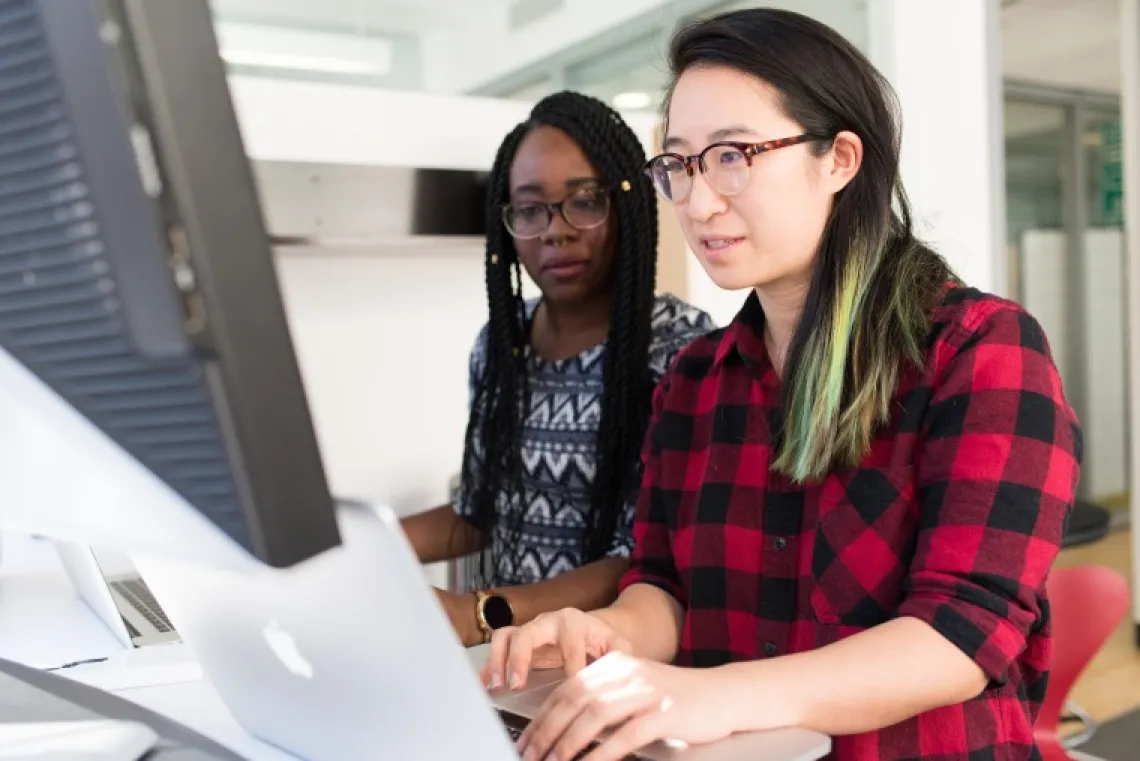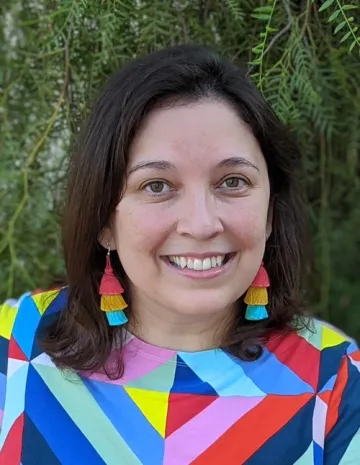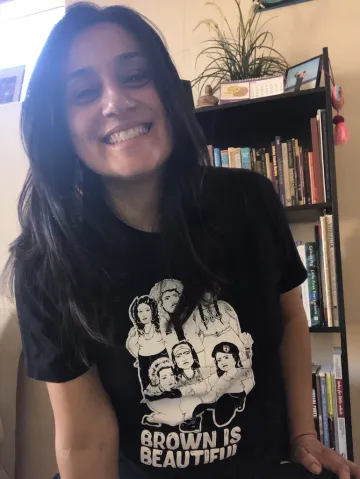Mini-grant program promotes campus equity and inclusivity by empowering gender minorities
Together, the BIO5 Institute and the UArizona Commission on the Status of Women funded two high-impact projects aimed to provide resources and mentorship.

In support of the University of Arizona Commission on the Status of Women (CSW), the BIO5 Institute recently funded two grants geared towards enhancing the equity, diversity and inclusivity of all gender identities on campus.
Adriana Picoral, assistant professor in the School of Information, was awarded $630 to increase gender inclusivity in data science at UArizona through professional development workshops and mentoring opportunities for students. Michelle Téllez, assistant professor of Mexican American studies, was awarded $1,500 to host a virtual writing retreat for mothers of color.
The CSW is a “well-established advocacy arm of the University of Arizona that actively champions a just, equitable and inclusive campus.” Since 2018, the Commission has competitively offered small grants for UArizona faculty, staff and graduate student projects that promote their mission.
BIO5 partners with CSW to provide two additional grants to promote cross-disciplinary projects that align with the BIO5 tri-mission of research excellence, engaged learning and an impact on our community and state. In this most recent grant cycle, the CSW and BIO5 together provided more than $10K to eight campus projects.
“BIO5 is always looking to partner with colleagues and important initiatives across campus, so the CSW mini-grant program seemed like a great opportunity,” said Kate Riley, BIO5 director of finance and operations. “Through these joint awards, we’ve extended CSW’s reach and positively impacted a population on campus that would be unlikely to secure funding otherwise. The ability to provide grants to address inequities in gender and race, and to assist mothers, is very rewarding. We look forward to future proposal rounds and other great projects that support equity, diversity and inclusivity.”
Increasing gender inclusivity in data science
While there are a few training resources at UArizona, minority genders (including but not limited to cis/trans women, trans men, non-binary, genderqueer and agender) are still largely underrepresented in the data science community. Coding since the age of nine, Picoral never once questioned her desire to pursue computer and data sciences until she entered college as a first-generation student.
“When I got to college, I was questioned constantly,” she recalls. “People would say, ‘What are you doing here? Women don’t code.’”

Only 10% of her computer science peers were female, and she never once received positive feedback from professors, despite being a high achiever. In graduate school, Picoral finally learned the importance of mentorship and feedback. Not only did this support enable her to publish research manuscripts and create products that are now used across campus, but also instilled confidence and confirmed her belonging.
Picoral’s first-hand mentoring experience inspires her to support other people of minority genders in data science, especially through her BIO5/CSW-funded project. To increase inclusivity and provide opportunities for undergraduate and graduate students of minority genders, Picoral will organize three professional development workshops featuring herself and two other invited speakers.
Each workshop leader will provide knowledge about data science skills and share their personal journey into data science. Through these forums, Picoral hopes to inspire conversation about “who” is considered a data scientist. By showing students that data scientists work not only in the hard sciences but also in education, linguistics and other non-traditional fields, Picoral aims to demonstrate that there is a place for everyone in data science.
Because a student, much like her younger self, might not know the importance of feedback until they personally receive it, Picoral will also engage attendees in “demonstration mentoring sessions.” During these miniature mentoring exercises, pre-selected students will briefly describe their data science project and receive feedback from the workshop facilitator, followed by a question-and-answer session.
Picoral ultimately hopes this BIO5/CSW awarded project serves as a proof-of-principle pilot program to obtain funding for a larger external grant to expand her reach.
“I hope that by providing mentorship to all levels of students, maybe more women will feel more confident diving into the field and not question their belonging,” she said.
Mothers of Color in Academia (MOCA) virtual writing retreat
Women of color have the odds stacked against them at a young age. For example, about 46% of Chicanas graduate with high school degrees, and roughly half of those attend college. Not even one in 100 Chicanas graduates with a doctoral degree.
Studies show that women, especially mothers, of color in academia are less likely to finish graduate school, secure tenure track faculty positions, and find success in those positions due to institutional and structural barriers. Overwhelming workloads, microaggressions, and the difficulties of balancing family and scholarly work have only been exacerbated by the COVID-19 pandemic.

A Chicana woman herself, Téllez gave birth to her daughter just one year after completing her doctorate but only took two weeks of maternity leave – thanks to friends who covered her classes – because a formal maternity leave policy was lacking where she worked at the time. A few years later, Téllez was denied tenure. Enraged by her experience, Téllez has since employed the power of community to protect other mothers of color from battling the same obstacles.
“I don’t want anyone to have to go through what I did,” she said.
Mothers of Color (MOCA) de UArizona, a group of student-parents, aims to create a supportive space and community for mothers of color on the UArizona campus and beyond. Since many graduate students, especially mothers of color, seek guidance and resources to navigate their journey to a doctoral degree, Téllez serves as a mentor to these individuals. To further support MOCA graduate students in their professional endeavors, Téllez will use her BIO5/CSW grant to host a virtual writing retreat to provide dissertation writing assistance.
“These women need an opportunity to think and write together,” she said. “This retreat will not only advance the writing and academic goals of these mothers, but it will also give them an opportunity to be inspired by their peers with similar experiences and form a community.”
In addition to her work with MOCA, Téllez emboldens mothers of color through her writing, speaking engagements, research, and the Chicana M(other)work Collective, a movement she co-founded to support student and working mothers through the sharing of gendered, classed, and racialized experiences specific to mothers of colors.
“My work is about survival and connection. It’s about creating opportunities for students and academics to thrive,” she said.
